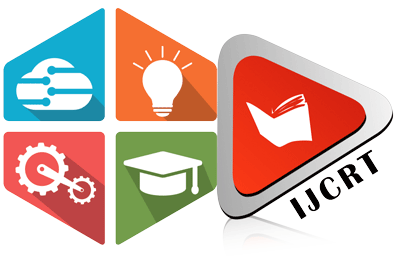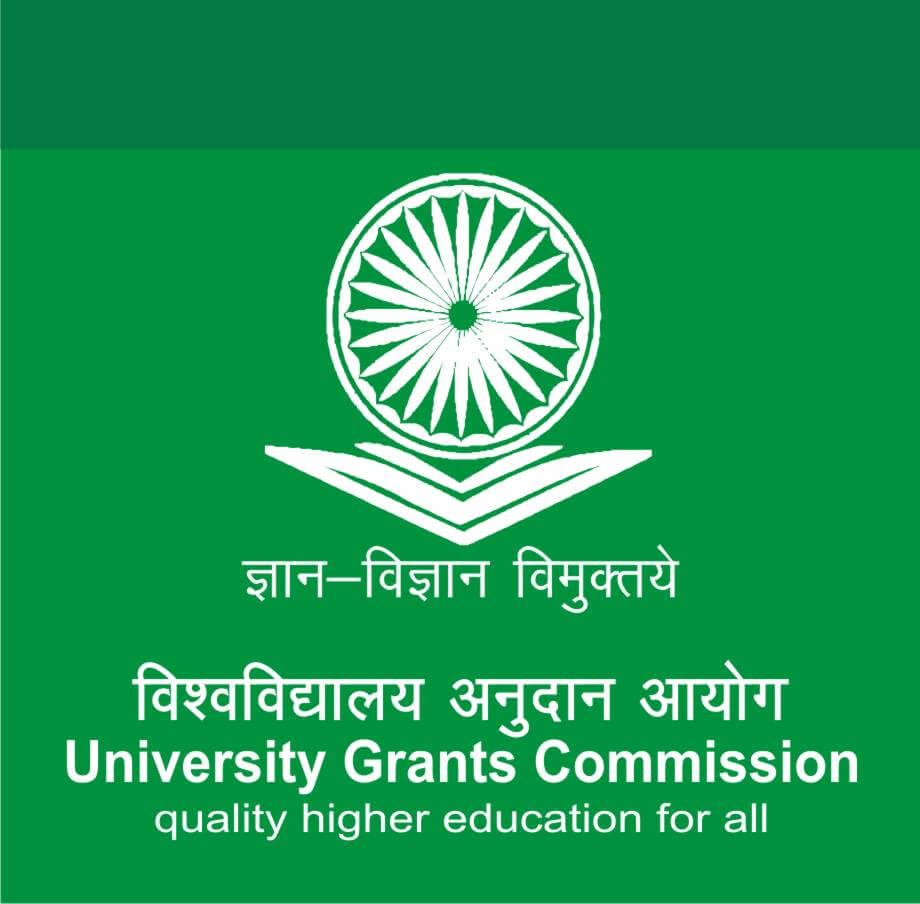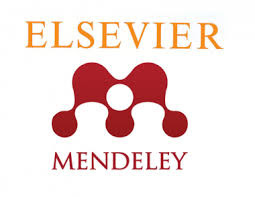INTERNATIONAL JOURNAL OF CREATIVE RESEARCH THOUGHTS - IJCRT (IJCRT.ORG)
International Peer Reviewed & Refereed Journals, Open Access Journal
IJCRT Peer-Reviewed (Refereed) Journal as Per New UGC Rules.
ISSN Approved Journal No: 2320-2882 | Impact factor: 7.97 | ESTD Year: 2013
Call For Paper - Volume 13 | Issue 11 | Month- November 2025
Scholarly open access journals, Peer-reviewed, and Refereed Journals, Impact factor 7.97 (Calculate by google scholar and Semantic Scholar | AI-Powered Research Tool) , Multidisciplinary, Monthly, Indexing in all major database & Metadata, Citation Generator, Digital Object Identifier(CrossRef DOI)
Contact Us Click Here
WhatsApp Contact Click Here
Volume 12 | Issue 5
| IJCRT Journal front page | IJCRT Journal Back Page |
Paper Title: Solar Operated Multifunctional Agricultural Vehicle.
Publisher Journal Name: IJCRT
Your Paper Publication Details:
Published Paper ID: - IJCRT2405284
Register Paper ID - 259607
Title: SOLAR OPERATED MULTIFUNCTIONAL AGRICULTURAL VEHICLE.
Author Name(s): Sudesh Suhas Kulkarni, Avinash Bansi Rade, Hanumant Buvasaheb Raykar, Rohan Chandrakant Shelake, H. S. Kulkarni
Publisher Journal name: IJCRT
Volume: 12
Issue: 5
Pages: c602-c607
Year: May 2024
Downloads: 140
Abstract
The Solar Operated Multi-functional Agricultural Vehicle (SMAV), which combines electric propulsion, renewable energy, and advanced agricultural capabilities, represents a state-of-the-art approach to sustainable farming techniques. SMAVs provide a full answer to contemporary agricultural difficulties because they are outfitted with electric motors for propulsion, solar panels for power generation, and adaptable attachments for a range of agricultural jobs. With the use of precision agriculture technology, such as GPS, sensors, and automated control systems, farmers can optimize crop management techniques for increased yields and less environmental impact. These technologies also help to increase productivity and resource efficiency.
Licence: creative commons attribution 4.0
License
Keywords
Solar Multi-functional Agricultural Vehicle (SMAV), Renewable Energy, Electric Propulsion, Solar Panels, Versatile Attachments, Precision Agriculture, GPS, Automated Control Systems, Resource Efficiency.
License
Paper Title: Footprints of Coolitude: Tracing identity and pain in select poems of Khal Torabully and Sudesh Mishra
Publisher Journal Name: IJCRT
Your Paper Publication Details:
Published Paper ID: - IJCRT2405283
Register Paper ID - 259557
Title: FOOTPRINTS OF COOLITUDE: TRACING IDENTITY AND PAIN IN SELECT POEMS OF KHAL TORABULLY AND SUDESH MISHRA
Author Name(s): Shaiwal Kanaujia
Publisher Journal name: IJCRT
Volume: 12
Issue: 5
Pages: c592-c601
Year: May 2024
Downloads: 151
Abstract
Pitched uneasily between political exile and promising life, the girmits created a history of being a stranger estranged by their own strangeness. Indentured servants from India were taken to far away lands to work on plantations, with little or no pay, for a specific period of time. It was imposed involuntarily other judicial punishment, sometimes a voluntarily for purported eventual compensation of debt repayment. The lives of these people changed terribly and underwent transformation which was addressed rarely. The ancestral trauma of dislocation, the treacherous journey across the sea, hardships upon their arrival, and the ongoing process of loss of identity in the diasporic setup, resulted in the direct impact on the present experience of post indenture Indians across the world. Torabully takes on the journey for self-exploration to the first stone of memory where humans were treated as 'coolies' bound for plantation colonies. He coined the term 'coolitude' to feature an extended narrative and dwell on the necessities of the memories of homeland. In this paper, I will talk about the loss of identity and pain, as found in the poems of Khal Torabully and Sudesh Mishra, who have captured this essence of indentured servants.
Licence: creative commons attribution 4.0
License
Keywords
indentured labour, diaspora, loss of identity, pain, coolitude
License
Paper Title: Prototype Automatic Sensory Firefighting Drone
Publisher Journal Name: IJCRT
Your Paper Publication Details:
Published Paper ID: - IJCRT2405282
Register Paper ID - 259434
Title: PROTOTYPE AUTOMATIC SENSORY FIREFIGHTING DRONE
Author Name(s): Satish kumar K, Naveen V, Karankumar D, Santhoshkumar V, Sivaraman A
Publisher Journal name: IJCRT
Volume: 12
Issue: 5
Pages: c585-c591
Year: May 2024
Downloads: 160
Abstract
finding the location of fire caught area and send it via gps
Licence: creative commons attribution 4.0
License
Keywords
firefighting drone,gps location,tracker,fire sensor,reliability control
License
Paper Title: Innovative Approaches in Retinal Vascular Segmentation for Eye Disease Forecasting: A Review of Machine Learning and Deep Learning Models.
Publisher Journal Name: IJCRT
Your Paper Publication Details:
Published Paper ID: - IJCRT2405281
Register Paper ID - 259586
Title: INNOVATIVE APPROACHES IN RETINAL VASCULAR SEGMENTATION FOR EYE DISEASE FORECASTING: A REVIEW OF MACHINE LEARNING AND DEEP LEARNING MODELS.
Author Name(s): Neeraj Rajbhar, Roshan S. Bhanuse, Saksham Take, Tejas Thakre, Rahul Kachhwah
Publisher Journal name: IJCRT
Volume: 12
Issue: 5
Pages: c574-c584
Year: May 2024
Downloads: 119
Abstract
Retinal vascular segmentation plays a crucial role in the early diagnosis and prognosis of eye diseases such as diabetic retinopathy and age-related macular degeneration. Machine learning models have emerged as powerful tools for automating this segmentation process, enabling accurate and efficient analysis of retinal images. This survey explores innovative approaches in retinal vascular segmentation with a focus on machine learning techniques.We review a variety of machine learning models applied to retinal vascular segmentation, including deep learning architectures such as convolutional neural networks (CNNs), generative adversarial networks (GANs), and their combinations. The survey highlights key methodologies, challenges, and advancements in the field, aiming to provide a comprehensive understanding of the current state-of-the-art. Throughout the review, we identify critical gaps and limitations in existing literature, including issues related to model generalization across diverse datasets, robustness to image artifacts, and scalability for large-scale clinical applications. We discuss promising directions for future research, emphasizing the importance of interpretable and clinically validated segmentation models. By synthesizing insights from various machine learning approaches, this survey contributes to the ongoing efforts in developing accurate and reliable tools for eye disease forecasting based on retinal imaging data. The findings presented here serve as a valuable resource for researchers and practitioners working at the intersection of machine learning and ophthalmic healthcare, ultimately aiming to improve patient outcomes through early disease detection and personalized treatment strategies.
Licence: creative commons attribution 4.0
License
Keywords
Retinal Vessel Segmentation , Generative Adversarial Networks ,Convolutional neural network, Ophthalmology ,Disease Prediction
License
Paper Title: A CRITICAL ANALYSIS OF EXECUTION OF CAPITAL PUNISHMENT IN INDIAN CRIMINAL JUSTICE SYSTEM
Publisher Journal Name: IJCRT
Your Paper Publication Details:
Published Paper ID: - IJCRT2405280
Register Paper ID - 259565
Title: A CRITICAL ANALYSIS OF EXECUTION OF CAPITAL PUNISHMENT IN INDIAN CRIMINAL JUSTICE SYSTEM
Author Name(s): SUNITA ARYA
Publisher Journal name: IJCRT
Volume: 12
Issue: 5
Pages: c561-c573
Year: May 2024
Downloads: 115
Abstract
"???? ????? ?? ?? ?????? ??? ??? "?????????" ????? ?? ???????? ???? ???? ?? ??? ???? ?? ??????????? ???? ??? ???????? ??? ?? ???? ???? ???? ??? ?????? ?? ???????? ??????? ???, ?????? ??????, ???????? ?????? ?? ??? ??????? ???????? ??? ?? ???? ???? ???? ??? "?????????" ?? ????? ???????? ???? ?? ? ?? ???? ??? ?? ?? ???? ??? '?????????' ?? ???? ???? '???????? ?? ????????' ????? ???? ????? ??? ?? ???? ?? ????????? ?? '?????????' ??? ?????? ??? ?????? (IPC) ?? ??????? ??? ?????? ????? "?????????" ?? ??? ???? ??????? ?? ?????? ???? ???? ?????? ??????? ?? ???????? 21 ??? ??? ??? ?? ?? ???? ?? ???? ?? ????????? ?????????? ?? ????? ?? ??? ???? ?????? ??????????? ?? ???? ???? ?? ???? ??? ??????? ???, ??? ?????? ?? ??????? ???? ?? ???, ??? ?? ???? ??? ?? ????? ?? ??? ???? ?? ??? ?????? ???????" ???? ?????? ????? ???? ???? ????????? ?? ??? ???? ??????? ??? ?? ??? ?? ??? ????? ?????????? ?? ?????????? ?? ??? ?????? ?? ???? ??? ?? ??? ?? ?????? ?? ???? ??? ?? ?? ???? ?? ????????? ?? ????? ????? ???? ???? ?? ?? ???? ??? ?? ????
Licence: creative commons attribution 4.0
License
Keywords
?????????, ??????, ?????, ???
License
Paper Title: PREVALENCE OF NECK PAIN IN UNDERGRADUATE COMPUTER SCIENCE STUDENTS IN VISNAGAR CITY OF GUJARAT
Publisher Journal Name: IJCRT
Your Paper Publication Details:
Published Paper ID: - IJCRT2405278
Register Paper ID - 259510
Title: PREVALENCE OF NECK PAIN IN UNDERGRADUATE COMPUTER SCIENCE STUDENTS IN VISNAGAR CITY OF GUJARAT
Author Name(s): Kautliya raval, Dr. pratik Patel, Dr.Vijay Pandita, Dr. Yash Patel
Publisher Journal name: IJCRT
Volume: 12
Issue: 5
Pages: c548-c554
Year: May 2024
Downloads: 160
Abstract
The aim of this study was to find out the prevalence of neck pain among computer science students in Visnagar city. A cross sectional study performed among 200 Computer Science students aged 18 to 22 years. Results revealed 51.5% prevalence rate, 48.5% of participants had no disability, 48.0% had a mild disability, and 3.5% had a moderate disability. Students' self-reported gender distribution was 67% male and 33% female based on the results of the self-questionnaire.A study reveals mild neck pain among undergraduate computer science students, affecting everyday tasks. To prevent accidents and promote healthier habits and ergonomic education should be enhanced. Index Terms - Neck pain, NDI, Musculoskele
Licence: creative commons attribution 4.0
License
Keywords
Neck pain, NDI, Musculoskeletal disorders, Musculoskeletal symptoms.
License
Paper Title: A comparative study on ola and uber
Publisher Journal Name: IJCRT
Your Paper Publication Details:
Published Paper ID: - IJCRT2405276
Register Paper ID - 259503
Title: A COMPARATIVE STUDY ON OLA AND UBER
Author Name(s): Vidhya lakshmi, Mehul Sharma, Pranesh Patel
Publisher Journal name: IJCRT
Volume: 12
Issue: 5
Pages: c535-c542
Year: May 2024
Downloads: 259
Abstract
Ridesharing systems have revolutionized urban transportation, dominated by global giants Ola and Uber. This study comprehensively compares the two, examining service quality, market reach, and customer satisfaction. Using a mixed-methods approach blending literature review and empirical data, factors like pricing, coverage, technology, and user experiences are analyzed. Regulatory hurdles, driver satisfaction, and corporate governance are also considered. The findings shed light on each platform's strengths, weaknesses, and operational strategies, offering insights valuable beyond ridesharing to platform-based business models and urban transportation dynamics. This research aids policymakers, industry players, and researchers in strategic decision-making and future investigations.
Licence: creative commons attribution 4.0
License
Keywords
Ridesharing, Comparative Analysis, Market Penetration, Platform-Based Business Models, Pricing Strategies
License
Paper Title: REAL-TIME FACE ATTENDANCE SYSTEM USING DEEP LEARNING
Publisher Journal Name: IJCRT
Your Paper Publication Details:
Published Paper ID: - IJCRT2405275
Register Paper ID - 259253
Title: REAL-TIME FACE ATTENDANCE SYSTEM USING DEEP LEARNING
Author Name(s): J.Srikanth, Dr.A.Jeya Murugan, M.Rathish, S.Gokul Kannan
Publisher Journal name: IJCRT
Volume: 12
Issue: 5
Pages: c527-c534
Year: May 2024
Downloads: 165
Abstract
Face is the representation of one's identity. Hence, we have proposed an automated student attendance system based on face recognition. Face recognition systems are useful in life applications, especially security control systems. The airport protection system uses face recognition to identify suspects and the FBI (Federal Bureau of Investigation) uses face recognition for criminal investigations. In our proposed approach, firstly, video framing is performed by activating the camera through a user-friendly interface. The face ROI is detected and segmented from the video frame using the Viola-Jones algorithm. In the pre-processing stage, scaling of the size of images is performed if necessary to prevent loss of information. The median filtering is applied to remove noise followed by conversion of colour images to grayscale images. After that, contrast-limited adaptive histogram equalization (CLAHE) is implemented on images to enhance the contrast of images. In the face recognition stage, enhanced local binary pattern (LBP) and principal component analysis (PCA) are applied correspondingly to extract the features from facial images.
Licence: creative commons attribution 4.0
License
Keywords
Face detection, Machine Learning, Deep learning, AI, Image Processing
License
Paper Title: Innovative Solutions for Addressing Domestic Violence through Technological Innovation
Publisher Journal Name: IJCRT
Your Paper Publication Details:
Published Paper ID: - IJCRT2405274
Register Paper ID - 259575
Title: INNOVATIVE SOLUTIONS FOR ADDRESSING DOMESTIC VIOLENCE THROUGH TECHNOLOGICAL INNOVATION
Author Name(s): D. Chitra, Mr.G.Lokesh
Publisher Journal name: IJCRT
Volume: 12
Issue: 5
Pages: c515-c526
Year: May 2024
Downloads: 175
Abstract
This research investigates technology's pivotal role in addressing domestic violence, an issue spanning socioeconomic and cultural divides. It examines innovative methods like data analytics from digital platforms, ambient sensors, smartphones, wearables, and virtual reality to detect and aid domestic violence victims. The study also introduces a novel approach: emotion detection from text and live webcam facial analysis to gauge emotions. While outlining the capabilities and applications of these technologies, the paper also highlights challenges and limitations. Ultimately, it aspires to steer future research and development in leveraging technology to combat domestic violence, underscoring its societal significance.
Licence: creative commons attribution 4.0
License
Paper Title: Review on Role of viral vector in Recombinant Technology
Publisher Journal Name: IJCRT
Your Paper Publication Details:
Published Paper ID: - IJCRT2405273
Register Paper ID - 251251
Title: REVIEW ON ROLE OF VIRAL VECTOR IN RECOMBINANT TECHNOLOGY
Author Name(s): Urmi Prajapati, Vidhi Patel, Bijal Yadav, Sachin Narkhede, Shailesh Luhar
Publisher Journal name: IJCRT
Volume: 12
Issue: 5
Pages: c506-c514
Year: May 2024
Downloads: 196
Abstract
Viral vectors play a pivotal role in recombinant technology, serving as vehicles for delivering foreign genetic material into host cells. They are engineered viruses that have been modified to carry and express desired genes. Through their natural ability to infect cells and integrate their genetic material, viral vectors efficiently transfer genes into target cells. This technology has widespread applications in gene therapy, vaccine development, and gene editing. By utilizing viral vectors, researchers can introduce therapeutic genes into specific tissues to treat genetic disorders or deliver vaccines against infectious diseases. Adeno-associated virus (AAV), lentivirus, and adenovirus are commonly used viral vectors, each with unique properties and applications. Despite their potential, careful consideration of safety and immunogenicity concerns is essential in their design and implementation. Overall, viral vectors represent a versatile tool in recombinant technology, offering promising avenues for medical advancements.
Licence: creative commons attribution 4.0
License
Keywords
Recombinant technology, Viral vector, Adenoviral vector, Lentivirus
License
Paper Title: IOT Based Smart Ambulance
Publisher Journal Name: IJCRT
Your Paper Publication Details:
Published Paper ID: - IJCRT2405272
Register Paper ID - 259600
Title: IOT BASED SMART AMBULANCE
Author Name(s): Nandhana PK, Varsha K, Safeeda P, Sanjay Krishna C, Minu Augustine
Publisher Journal name: IJCRT
Volume: 12
Issue: 5
Pages: c502-c505
Year: May 2024
Downloads: 211
Abstract
The smart ambulance, powered by IoT technology, incorporates a range of sensors and communication devices to create a unified and flexible medical environment. Crucial aspects of this configuration comprise real-time health monitoring sensors for patients and communication systems enabling smooth coordination among hospitals and emergency units. Patient Health Monitoring acts as a framework aimed at improving the standard of medical care during patient transit. Road traffic congestion is a primary cause of ambulance delays. Another goal of this project is to construct an intelligent ambulance that reaches the hospital early and avoids heavy traffic by delivering a notification to the associated traffic authority in case of emergency.
Licence: creative commons attribution 4.0
License
Keywords
IoT, Real-Time health monitoring, Patient monitoring, Traffic Control
License
Paper Title: Cybersecurity and Fraud Prevention in India's Financial Sector: A Comprehensive Review
Publisher Journal Name: IJCRT
Your Paper Publication Details:
Published Paper ID: - IJCRT2405271
Register Paper ID - 259588
Title: CYBERSECURITY AND FRAUD PREVENTION IN INDIA'S FINANCIAL SECTOR: A COMPREHENSIVE REVIEW
Author Name(s): Dr Poonam Wani, Dr Veena P Bhosale
Publisher Journal name: IJCRT
Volume: 12
Issue: 5
Pages: c494-c501
Year: May 2024
Downloads: 156
Abstract
Financial institutions, because to their possession of substantial amounts of sensitive financial data and assets, are frequently targeted by hackers. The success of the financial business relies heavily on the maintenance of regulatory compliance, safeguarding sensitive consumer data, and verifying the authenticity of financial transactions. Financial institutions must maintain ongoing vigilance and develop robust defenses due to the ever-changing nature of the cybersecurity landscape. Neglecting to do so might lead to substantial legal obligations, financial setbacks, and damage to one's reputation. To ensure consumer confidence and safeguard financial transactions, the banking industry must continue to make substantial investments in cybersecurity. This research study examines recent significant cyber security incidents and the various sorts of cyber threats that different sectors have encountered. Financial institutions must adhere to legislation that mandates the use of preventive measures, such as authentication technologies, in addition to fulfilling the requirements and responsibilities set by regulatory authorities. Regarding the utilization of machine learning and algorithmic predictive modelling for activity identification, the significance of educating staff members is becoming evident, alongside the implementation of awareness initiatives and programs.
Licence: creative commons attribution 4.0
License
Keywords
Financial institutions, hackers, cybersecurity, regulatory compliance
License
Paper Title: Women empowerment as a tool for enhancing her protection and prestige.
Publisher Journal Name: IJCRT
Your Paper Publication Details:
Published Paper ID: - IJCRT2405270
Register Paper ID - 259252
Title: WOMEN EMPOWERMENT AS A TOOL FOR ENHANCING HER PROTECTION AND PRESTIGE.
Author Name(s): Nazia Fayaz Azad, Farheen Mushtaq, Anees ul Islam Asmi, Iqra Firdous, Khazin Munir
Publisher Journal name: IJCRT
Volume: 12
Issue: 5
Pages: c483-c492
Year: May 2024
Downloads: 165
Abstract
This paper talks about the status of women as she has been placed on high pedestal during medieval as well as modern times. Women empowerment is day by day increasing the potential of women in every field. The paper will focus on the both eastern as well as western movement of women empowerment. It will also analyze the insecurities of modern women and will suggest measures for empowerment so that the ultimate goal is achieved. "An enlightened woman is a source of infinite energy."
Licence: creative commons attribution 4.0
License
Keywords
Keywords: Women empowerment, Gender equality, Domestic violence, CEDAW
License
Paper Title: Airplane Fare Prediction Using Machine Learning
Publisher Journal Name: IJCRT
Your Paper Publication Details:
Published Paper ID: - IJCRT2405269
Register Paper ID - 259578
Title: AIRPLANE FARE PREDICTION USING MACHINE LEARNING
Author Name(s): Attada Yamini, Kolati Bhavani, Mongam Asha, Gandatti Sridhar, Manda Sravanti
Publisher Journal name: IJCRT
Volume: 12
Issue: 5
Pages: c476-c482
Year: May 2024
Downloads: 153
Abstract
Currently, Everyone loves to travel by flights . Going along with the study ,the charge of travelling through a plane charge now and then which also includes the day & night time. Additionally , it changes with special times of the year of celebration seasons .There are a unique elements upon which the cost of air transport depends .For example time of the day ,time of take off , number of stops between them , number of days remaining in the month will provide the perfect time to purchase the plane ticket. As a result ,it is a basic understanding of flight rates before booking a vacation will undoubtedly save many individuals money and time. The goal is to investigate the factors that determine the cost of a flight. The data can be used to create a system that predicts flight prices.
Licence: creative commons attribution 4.0
License
Keywords
Machine Learning Algorithms, airfare, supervised learning, predictions, flight, Linear Regression, Artificial Neural Network, Random Forest.
License
Paper Title: HEALTH AND ENVIRONMENT PROBLEMS OF SLAUGHTERHOUSE WASTE
Publisher Journal Name: IJCRT
Your Paper Publication Details:
Published Paper ID: - IJCRT2405268
Register Paper ID - 259526
Title: HEALTH AND ENVIRONMENT PROBLEMS OF SLAUGHTERHOUSE WASTE
Author Name(s): Sangeetha P G
Publisher Journal name: IJCRT
Volume: 12
Issue: 5
Pages: c471-c475
Year: May 2024
Downloads: 159
Abstract
WHO defines that "Health is a state of complete physical, mental and social well-being and not merely the absence of disease or infirmity". The state of human health in a region not only depends on the number of doctors and hospital facilities but also on a clean environment .The term environment means that surrounding space and all materials in it which affect an organism. It includes all the physical and biological surrounding and their interactions. Environmental health as defined by WHO comprises those aspects of human health, including the quality of life, that are determined by physical ,chemical ,biological ,social and psychological factors in the environment. Waste is an unavoidable by-product of most of the activity. Due to rapid urbanization, the food habits of the people changed drastically towards animal protein content food items which led to the increased consumption of meat. Besides this the income and price elasticity of animal protein foods are very high this resulted growing rate of slaughtering of animals in India . Per capita annual increase in meat consumption, high meat export potential, large non-utilization of potential meat and lack of by product utilization etc. leads to many problems and constraints.
Licence: creative commons attribution 4.0
License
Keywords
Slaughterhouse, wastage, environment
License
Paper Title: IMPACT OF SELF TRANSCENDENCE ON BODY IMAGE AND EMOTIONAL COMPETENCE OF COLLEGE STUDENTS
Publisher Journal Name: IJCRT
Your Paper Publication Details:
Published Paper ID: - IJCRT2405267
Register Paper ID - 259535
Title: IMPACT OF SELF TRANSCENDENCE ON BODY IMAGE AND EMOTIONAL COMPETENCE OF COLLEGE STUDENTS
Author Name(s): Vidushi Pandey
Publisher Journal name: IJCRT
Volume: 12
Issue: 5
Pages: c448-c470
Year: May 2024
Downloads: 147
Abstract
This research investigated the relationship of self-transcendence with body image and emotional competence among college students. The aim was to understand the impact of self- transcendence on these variables and its implications for therapeutic interventions. The study sample consisted of college students, and the results revealed significant and positive associations between self-transcendence and emotional intelligence as well as self- transcendence and body image Regression analysis indicated that self-transcendence significantly predicted emotional intelligence and body image. These findings highlight the importance of self-transcendence in shaping emotional competence and body image among college students, providing valuable insights for therapeutic interventions and promoting mental well-being. Further research is needed to address limitations and explore additional factors influencing these relationships.
Licence: creative commons attribution 4.0
License
Keywords
Self transcendence, Body image, Emotional Competence, Well-being.
License
Paper Title: Secure E-Chain: Block Chain E-coupon Service
Publisher Journal Name: IJCRT
Your Paper Publication Details:
Published Paper ID: - IJCRT2405266
Register Paper ID - 259124
Title: SECURE E-CHAIN: BLOCK CHAIN E-COUPON SERVICE
Author Name(s): P.Gopi, Mrs.K.Rupa
Publisher Journal name: IJCRT
Volume: 12
Issue: 5
Pages: c439-c447
Year: May 2024
Downloads: 163
Abstract
In response to the vulnerabilities posed by centralized e-coupon services, we propose a novel approach leveraging blockchain technology for enhanced security. Centralized e-coupon servers often face issues like forgery and double-spending, undermining user trust. Our solution entails integrating a blockchain system to fortify e-coupon services. We devise a dedicated server to facilitate the e-coupon service, communicating seamlessly with the blockchain. Through a smart contract embedded within the blockchain, we ensure the integrity of e-coupon logic and information. Our implementation on an Ethereum-based blockchain system showcases the feasibility of our approach. Additionally, we propose an extension utilizing the InterPlanetary File System (IPFS) server to mitigate the cost of storing e-coupon details on the blockchain, thus optimizing resource utilization and reducing expenses.
Licence: creative commons attribution 4.0
License
Paper Title: E V Smart Charging System
Publisher Journal Name: IJCRT
Your Paper Publication Details:
Published Paper ID: - IJCRT2405265
Register Paper ID - 259656
Title: E V SMART CHARGING SYSTEM
Author Name(s): Goutham Krishna C M, Harikrishnan C N, Sidharth P V, Irfan K N, Baby V
Publisher Journal name: IJCRT
Volume: 12
Issue: 5
Pages: c431-c438
Year: May 2024
Downloads: 165
Abstract
The goal of this project is to create EV Charging Station app to help EV drivers locate available charging stations near them. After locating a charging station, users can also book a slot at the station to charge their vehicle. EV owners can also use this system to plan their trips more efficiently Users simply need to specify the source and destination. Based on these two parameters, this system prepares a road map with all available charging stations along the journey. In the recent decade we have witnessed monumental advancements in electric vehicles and the charging technology. Electric vehicles still fall short when it comes to aspects such as finding charging stations. Unlike people driving conventional cars, EV owners can't have their vehicles refueled at any fuel station. Drivers with electric cars have to keep their car charged well in advance before departing. The need for developing infrastructure such as charging stations is undeniable. In this system the user is able to manage all his Ev's inside the app, search /book a slot in advance in the charging stations. The User can also search an EV station based on nearby, city or kilometers. Admin will manage all the stations and slots.
Licence: creative commons attribution 4.0
License
Keywords
EV, Electric Vehicle, Charging Station, GPS
License
Paper Title: The Role of Government and NGOs in Special Education for Young Children in Delhi
Publisher Journal Name: IJCRT
Your Paper Publication Details:
Published Paper ID: - IJCRT2405264
Register Paper ID - 259536
Title: THE ROLE OF GOVERNMENT AND NGOS IN SPECIAL EDUCATION FOR YOUNG CHILDREN IN DELHI
Author Name(s): NEERAJ PANJGOTRA
Publisher Journal name: IJCRT
Volume: 12
Issue: 5
Pages: c427-c430
Year: May 2024
Downloads: 302
Abstract
In Delhi, the government and NGOs play pivotal roles in special education for young children. The government ensures equitable access to education through policy frameworks, funding, and infrastructure development. It establishes special schools and inclusion programs, employing trained educators and therapists. NGOs complement governmental efforts by providing additional resources, advocacy, and community engagement. They offer specialized services, teacher training, and parent support, filling gaps in the system. Collaboratively, they strive for inclusive education, empowering children with disabilities to reach their full potential. Synergizing efforts between government and NGOs is crucial for enhancing the quality and accessibility of special education in Delhi. The government's role encompasses policy formulation, resource allocation, and infrastructure development, ensuring inclusive practices in mainstream schools and specialized institutions. NGOs contribute through grassroots initiatives, innovative programs, and advocacy, addressing specific needs and bridging gaps in services. Together, they create a supportive ecosystem, offering tailored interventions, teacher training, parental guidance, and community outreach. This synergistic approach fosters holistic development, social inclusion, and equal opportunities for children with disabilities, promoting a more inclusive and compassionate society in Delhi and beyond
Licence: creative commons attribution 4.0
License
Keywords
iIndian Mythology, Deconstruction, Hero, Villian, Mahabharata, Ramayana, Epic.
License
Paper Title: Enhancing Job Title Identification With BERT And Unsupervised Learning
Publisher Journal Name: IJCRT
Your Paper Publication Details:
Published Paper ID: - IJCRT2405263
Register Paper ID - 259360
Title: ENHANCING JOB TITLE IDENTIFICATION WITH BERT AND UNSUPERVISED LEARNING
Author Name(s): Y.Harshavardhan, Mr.P Ramesh
Publisher Journal name: IJCRT
Volume: 12
Issue: 5
Pages: c417-c426
Year: May 2024
Downloads: 158
Abstract
Licence: creative commons attribution 4.0
License
About IJCRT
The International Journal of Creative Research Thoughts (IJCRT) aims to explore advances in research pertaining to applied, theoretical and experimental Technological studies. The goal is to promote scientific information interchange between researchers, developers, engineers, students, and practitioners working in and around the world.
Indexing In Google Scholar, ResearcherID Thomson Reuters, Mendeley : reference manager, Academia.edu, arXiv.org, Research Gate, CiteSeerX, DocStoc, ISSUU, Scribd, and many more International Journal of Creative Research Thoughts (IJCRT) ISSN: 2320-2882 | Impact Factor: 7.97 | 7.97 impact factor and ISSN Approved. Provide DOI and Hard copy of Certificate. Low Open Access Processing Charges. 1500 INR for Indian author & 55$ for foreign International author. Call For Paper (Volume 13 | Issue 11 | Month- November 2025)
November 2025
Volume 13 | Issue 11
Last Date :
30-Nov-2025
Submit Manuscript Online Impact Factor: 7.97 Review Results : Within 02-03 Days Paper Publication : Within 02-03 Days

ISSN: 2320-2882 Impact Factor: 7.97 and ISSN APPROVED Journal Starting Year (ESTD) : 2013

ISSN: 2320-2882 Impact Factor: 7.97 and ISSN APPROVED Journal Starting Year (ESTD) : 2013

CONFERENCE PROPOSAL CONFERENCE PROCEEDINGS







































































